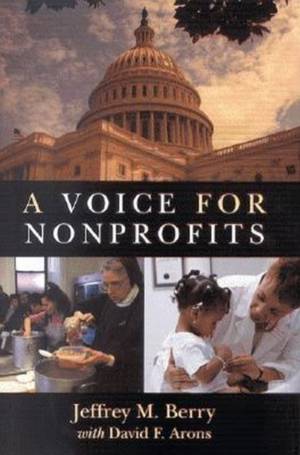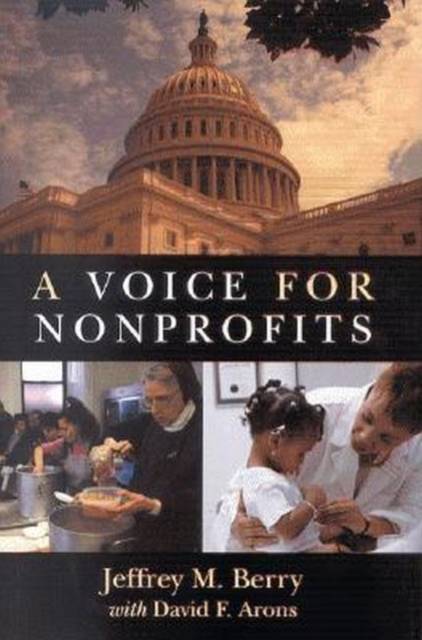
- Afhalen na 1 uur in een winkel met voorraad
- Gratis thuislevering in België vanaf € 30
- Ruim aanbod met 7 miljoen producten
- Afhalen na 1 uur in een winkel met voorraad
- Gratis thuislevering in België vanaf € 30
- Ruim aanbod met 7 miljoen producten
Omschrijving
Nonprofit organizations are playing an increasingly important role in delivering basic government services. Yet they are discouraged by federal law from participating in legislative lobbying efforts--even on issues that affect their clients directly. Without the involvement of nonprofits in the governmental process, the vulnerable populations they serve are left without effective representation in the political system. A Voice for Nonprofits analyzes the effect of government restrictions on the participation of nonprofits in the policymaking process and suggests ways to address the problems. The relationship between nonprofits and the government is ideal in many respects, according to Jeffrey M. Berry and David F. Arons. By underwriting operating budgets and subcontracting the administration of programs to nonprofits, governments at all levels are able to take advantage of nonprofits' dedication, imagination, and private fund-raising skills. However, as nonprofits assume greater responsibility for delivering services traditionally provided by government, that responsibility is not matched by a congruous increase in policy influence. Berry and Arons believe the lobbying restrictions should be eased so that nonprofits may become more involved in public policymaking. Their recommendations are designed to ensure that nonprofit organizations--and the constituencies they serve--are effectively represented in the American political system.
Specificaties
Betrokkenen
- Auteur(s):
- Uitgeverij:
Inhoud
- Aantal bladzijden:
- 210
- Taal:
- Engels
Eigenschappen
- Productcode (EAN):
- 9780815709121
- Verschijningsdatum:
- 20/08/2003
- Uitvoering:
- Hardcover
- Formaat:
- Genaaid
- Afmetingen:
- 156 mm x 232 mm
- Gewicht:
- 462 g

Alleen bij Standaard Boekhandel
Beoordelingen
We publiceren alleen reviews die voldoen aan de voorwaarden voor reviews. Bekijk onze voorwaarden voor reviews.











